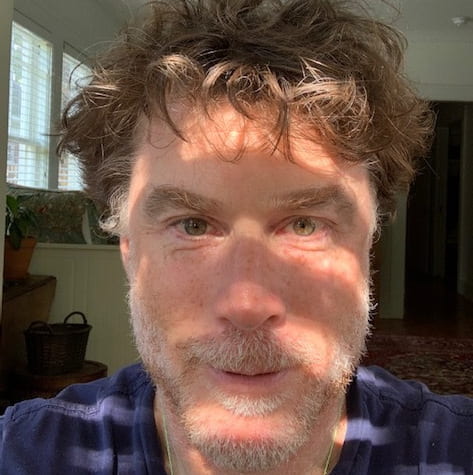Professor and Chair
School of Biological Sciences
Georgia Institute of Technology
Krone Engineered Biosystems Building, 3007
todd dot streelman at biology dot gatech dot edu
Google Scholar
Streelman grew up in Chestertown Md, where he developed a keen interest in the outdoors. He graduated with a BS in Biology from Bucknell University. While there, he attended a semester (plus one cold winter-mester) at the Marine Biological Laboratory in Woods Hole Massachusetts — where a chance encounter with Les Kaufman, Karel Liem, a few jars of pickled fish and a dental X-ray technician led to his lifelong love of cichlids. Streelman won the Pangburn Scholar-Athlete award (lacrosse) at BU.
As a PhD student with Stephen Karl, Streelman developed approaches to identify, clone and sequence multiple, independent single-copy nuclear loci to reconstruct accurate phylogenies for cichlid fishes and their relatives. These phylogenies changed perspective about how these species groups evolved, and allowed new and improved inference about the evolutionary history of key ecological traits. Multi-locus phylogenies are now the standard in the field.
As a postdoc in Tom Kocher’s lab and then a young investigator at Georgia Tech, Streelman worked on the first unbiased quantitative genetic (QTL) studies in Malawi cichlids, some of the first such studies in evolutionary systems. In particular, work showed that adaptive features of the cichlid jaw and the striking orange-blotch color polymorphism had a simple genetic basis.
Streelman was an Alfred P. Sloan Foundation Postdoctoral Fellow, an Alfred P. Sloan Foundation Faculty Research Fellow and a NSF CAREER Awardee.
Over the past two decades as an independent investigator, with support from the NSF, NIH and the Human Frontier Science Program, Streelman’s group has pioneered genomic and molecular biology approaches in the Malawi cichlid system to solve problems difficult to address in traditional model organisms. Major projects include (i) tooth and taste bud patterning and regeneration; (ii) the underpinnings of complex behavior; and (iii) developmental diversification of the face and brain.
Generally, we are captivated by context-dependent traits like development and behavior because they must be executed in space and time with exquisite control. We analyze and manipulate genomes and development in multiple species of Malawi cichlids, spanning divergence in embryonic/adult traits and behavior – and collaborate with folks studying these same traits in zebrafish, mouse and human. In 2014, Streelman helped to coordinate a large effort to sequence the genomes of five East African cichlids, including one from Lake Malawi. This was a landmark for our research community and has recast attention to genome-wide approaches. We are motivated by the prospect to dissect evolutionary change with genetic and cellular precision.
In his free time, Streelman likes mountaineering, skipping rocks and pickling.
Representative papers:
The genomic substrate for adaptive radiation in African cichlid fish
The stages of vertebrate evolutionary radiation
Directional selection has shaped the oral jaws of Lake Malawi cichlid fishes
The transcriptional consequences of mutation and natural selection in Caenorhabditis elegans
An ancient gene network is co-opted for teeth on old and new jaws
Brain diversity evolves via differences in patterning
Evolutionary history of the parrotfishes: biogeography, ecomorphology, and comparative diversity
Competing signals drive telencephalon diversity
Coevolutionary patterning of teeth and taste buds
Cleaner gobies evolve advertising stripes of higher contrast
The macroecology of rapid evolutionary radiation
Developmental plasticity of epithelial stem cells in tooth and taste bud renewal
